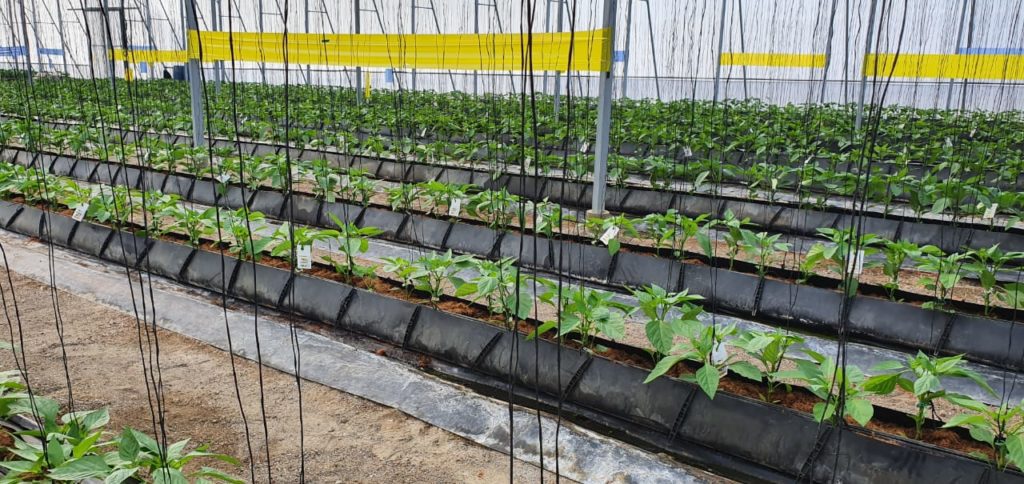Mar 25, 2020Promising start to IPM program in Dominican Republic peppers
A trial to introduce a full IPM programme to a sweet pepper crop in the Caribbean is showing promising results, reports Luis Espinoza, Biobest manager for Latin American countries.
“Sweet peppers are an important crop for the Dominican Republic (DR),” Espinoza said in a news release from Biopest, a biological crop protection and pollination company.
“As well as being a key ingredient of Caribbean cooking, the peppers are a valuable export crop to the U.S.
“Grown in plastic greenhouses and net houses, thrips are a major pest challenge – particularly as they act as vectors for plant viruses, such as tomato spotted wilt virus. While the thrips adults lay their eggs under the leaf surface, the pest pupae and larvae tend to hide inside flowers making them difficult to target with synthetic chemical sprays.”
Growers in the Dominican Republic have traditionally resorted to broad spectrum chemical pesticides to control thrips. However, pesticide resistance is building in the pest population making products less effective. Although crop protection regulations are not as strict as in North America, to access this important export market growers have to adhere to US regulatory standards. Growers are therefore coming under growing pressure to find an alternative solution.
To explore the potential of a fully integrated pest management strategy, Biobest’s local distributor – Nonno’s Bio Shop – recently set up a 1-hectare trial, in a newly planted pepper crop in the San Jose de Ocoa province.
“The crop was planted in mid-January and three weeks later the IPM program began,” Espinoza said. “The grower was advised to hang yellow and blue sticky traps above the crop to monitor the population of thrips, and other flying pests such as whitefly and aphid.
“Following crop scouting, Phytoseiulus-System was released into red spider mite hot spots. Swirskii-System was introduced to control broad mite hot spots as well as thrips, with the predatory quickly building up feeding on the pest larvae. To strengthen the strategy, Orius-System was also introduced to control the last larval stage as well as the adults.
“While some growers in the DR already have experience of using Orius-System, this is the first time to our knowledge that a full IPM programme has been successfully implemented. Although still very much early days, initial observations are looking promising and this grower is keen to roll the strategy out further in his pepper crops.”















